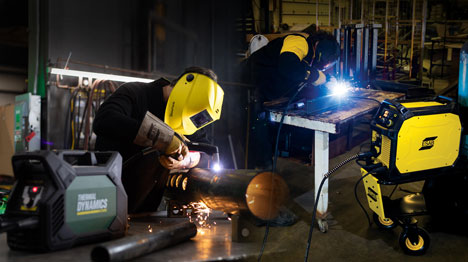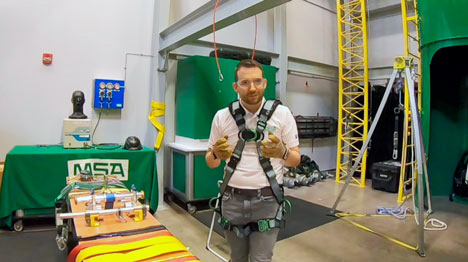Tackling the Manufacturing Skills Gap: 5 Skills Your Company Will Need Soon
Automation is significantly changing the marketplace, requiring manufacturing companies to seek new and different skills of employees to remain competitive.
Automation is significantly changing the marketplace, requiring manufacturing companies to seek new and different skills of employees to remain competitive.
The acceleration of automation has brought significant changes to employment in manufacturing. As the economy comes back to life and manufacturers look to staff up again, the skills gap is going to be more acute. Companies need employees with new and different skills to remain competitive.
Industry 4.0 is here, with all of its transformational power. Manufacturing companies are continuing to digitize more of their operations, and increasingly, they are seeking employees who can adjust to the technological shift sooner rather than later.
Workers who adapt to the new demands of the marketplace will have both the technical skills necessary for new types of jobs and the uniquely human attributes that are indispensable to running a successful business.
Here are five skills that manufacturing companies will need of workers in the near future.

In stark contrast to the digital transformation happening now in manufacturing, even a basic proficiency of technology and computers is outside the grasp of many manufacturing workers.
About 1 in 6 manufacturing employees have virtually no digital skills, according to a report by the National Skills Coalition. “These workers failed to meet one or more of the three baseline criteria to even take the full digital skills assessment: 1) prior computer use, 2) willingness to take the computer-based assessment, 3) ability to complete four out of six very basic tasks, such as using a mouse or highlighting text on screen.”
Working knowledge of the digital world will help workers efficiently operate CNC machines or CAM software, for example.
“To succeed in this rapidly transforming environment, workers need broad-based digital problem-solving skills that equip them to learn a wide variety of today’s technologies and navigate continued changes in the future,” the National Skills Coalition wrote in its report. “This digital literacy includes both the capacity to use technology and the cognitive skills necessary to navigate it successfully.”
Check out Better MRO’s career guides and trends
In its 2018 study of the skills gap and future of work in manufacturing, Deloitte paints a picture of a facility in 2025 that relies on workers who have technology, computer and digital skills. For example, a digital twin engineer would oversee an environment, including both the physical product and its virtual representation using Internet of Things connectivity, to manage the product from start to finish.

Instead of fearing that robots will take over their jobs, manufacturing workers should position themselves to manage the machines—in a way that only they can as humans. Industry experts believe that current jobs lost to robots will be partially offset by new jobs, as automation leads to greater productivity and business growth. But those workers will need new skills to stay relevant.
With robots becoming easier to program—whether it’s directly through a teaching pendant or offline via simulation software—it opens the door for workers with basic programming skills to oversee the robots and ensure their smooth operation, a benefit to both employee and employer.
“Somebody has to be designing the robot to do what they’re supposed to be doing on that assembly line, managing them, doing the maintenance,” Lizabeth Stuck, senior director at MxD Learn, part of a network of manufacturing innovation centers, told the tech recruiting company Built In.

Industry 4.0 is making facilities smarter. By integrating technologies such as artificial intelligence (AI) and IoT, businesses are gaining a competitive edge in the marketplace through improved efficiency and quality and reduced costs.
Key to a manufacturing business capitalizing on smart technology is maximizing the data it generates.
“Data is the lifeblood for the factory of the future,” writes Tom Leeson, a manufacturing expert, in an OpenText post. “Through applied AI and advanced analytics, data will drive all processes, detect operational errors, provide user feedback and improve the volume and quality of production output.”
Read more: Industry 4.0’s Smart Factory Is All About That Data
To harness the potential of data, workers will need to be able to get it from the machines, prepare it, analyze it and use it to improve the company’s production.
For example: In Deloitte’s model of the 2025 manufacturing facility, a predictive supply network analyst would use digital tools such as machine learning to evaluate supply and demand and make adjustments to the system to maximize performance.

Not only will manufacturing facilities need employees with skills in digital literacy, programming and data analysis, but they will also need workers who can manage the technology and do their jobs alongside automated machines.
Collaborative robots (cobots for short) are designed to take over more of the repetitive, dirty or dangerous tasks at the site, freeing up human workers to do more satisfying jobs. Unlike many of the robots before them, cobots are easy for people to use.
Consider this: Instead of manually inspecting an endless line of production parts, a human quality inspector could take a step back and monitor a cobot that is doing the work, tirelessly and more accurately. Among the new manufacturing jobs that Deloitte envisions for 2025 is a smart QA manager, who will manage the facility’s fully automated quality assurance system that includes artificial intelligence and virtual reality, and flag maintenance issues.

Critical thinking is decidedly human. It’s the ability to observe a situation, gather input from multiple sources (both humans and machines) and evaluate it, develop possible solutions while weighing the pros and cons of each course of action, choose the best plan to solve the problem, implement the plan and adjust it as needed.
“In manufacturing, this generally translates to solving problems in production, such as having the ability to identify quality failures with parts coming off an automated production line and, more importantly, to take actions that remediate the problem in real time,” Deloitte wrote in its 2018 study of manufacturing. “These skills are expected to become increasingly important as automation is added to production lines in the form of robots and cobots.”
Employees who are able to think critically can anticipate problems and react to issues quickly to minimize downtime and ensure a smoother operation. As facilities automate more of their production, this kind of human thinking could be enriching for the employee and provide the X-factor of success for the business.
MSC has partnered with Tooling U-SME, a leader in manufacturing for nearly 90 years, to offer online training packages that support core manufacturing roles by helping develop and maintain the necessary skills to keep up with new innovations and advanced manufacturing.




